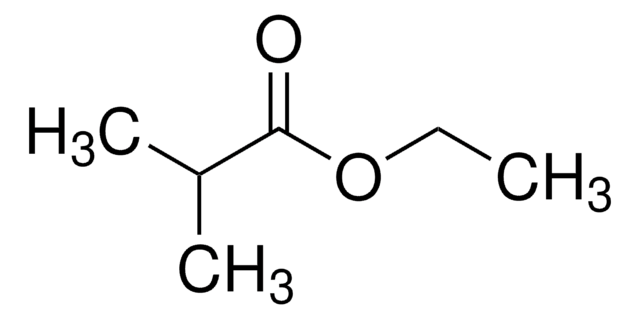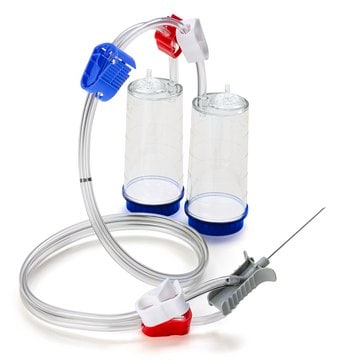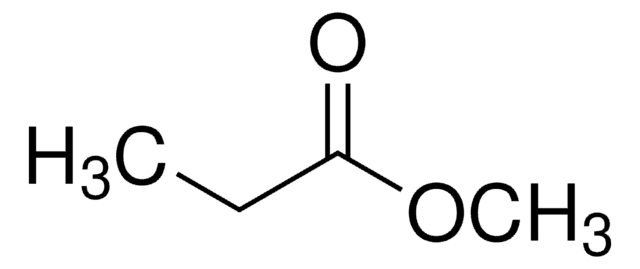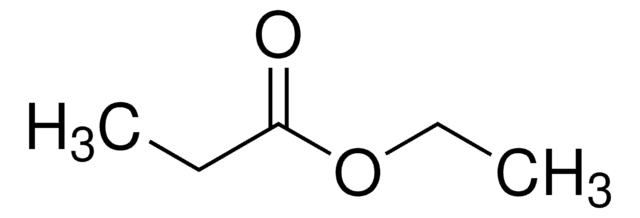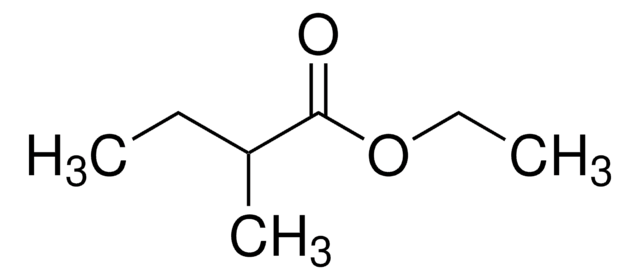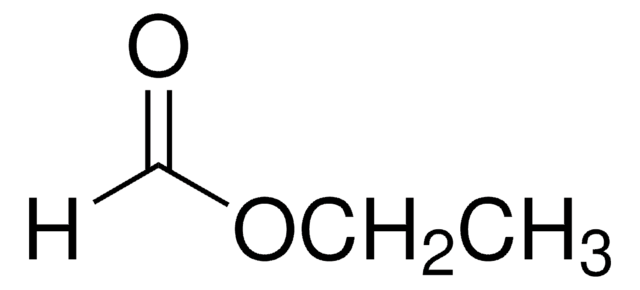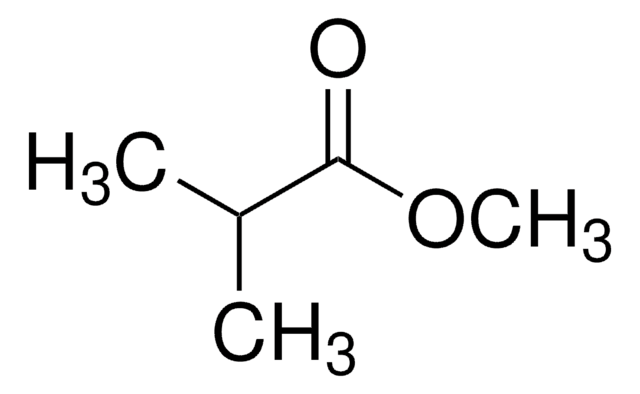W242802
Ethyl isobutyrate
≥98%, FCC, FG
Synonym(s):
Ethyl 2-methylpropanoate
About This Item
Fragrance grade
Halal
Kosher
meets purity specifications of JECFA
Recommended Products
biological source
synthetic
Quality Level
grade
FG
Fragrance grade
Halal
Kosher
Agency
follows IFRA guidelines
meets purity specifications of JECFA
reg. compliance
EU Regulation 1223/2009
EU Regulation 1334/2008 & 178/2002
FCC
FDA 21 CFR 117
FDA 21 CFR 172.515
vapor density
4.01 (vs air)
vapor pressure
40 mmHg ( 33.8 °C)
Assay
≥98%
refractive index
n20/D 1.387 (lit.)
bp
112-113 °C (lit.)
density
0.865 g/mL at 25 °C (lit.)
application(s)
flavors and fragrances
Documentation
see Safety & Documentation for available documents
food allergen
no known allergens
fragrance allergen
no known allergens
Organoleptic
ethereal; fruity; sweet
SMILES string
CCOC(=O)C(C)C
InChI
1S/C6H12O2/c1-4-8-6(7)5(2)3/h5H,4H2,1-3H3
InChI key
WDAXFOBOLVPGLV-UHFFFAOYSA-N
Looking for similar products? Visit Product Comparison Guide
General description
Application
- Recyclable polymeric pi-acid catalyst effective on Mannich-type reaction in water.: This study explores the use of a recyclable polymeric pi-acid catalyst, effective in facilitating Mannich-type reactions in aqueous environments, demonstrating a potential for enhancing green chemistry processes through water-based reactions (Masaki Y et al., 2006).
Signal Word
Danger
Hazard Statements
Precautionary Statements
Hazard Classifications
Flam. Liq. 2
Storage Class Code
3 - Flammable liquids
WGK
WGK 2
Flash Point(F)
68.0 °F - closed cup
Flash Point(C)
20 °C - closed cup
Personal Protective Equipment
Regulatory Listings
Regulatory Listings are mainly provided for chemical products. Only limited information can be provided here for non-chemical products. No entry means none of the components are listed. It is the user’s obligation to ensure the safe and legal use of the product.
FSL
Group 4: Flammable liquids
Type 1 petroleums
Hazardous rank II
Water insoluble liquid
ISHL Indicated Name
Substances Subject to be Indicated Names
ISHL Notified Names
Substances Subject to be Notified Names
JAN Code
W242802-4KG:
W242802-8KG:
W242802-800G:
W242802-BULK-K:
W242802-4KG-K:
W242802-9KG-K:4548173969121
W242802-20KG:
W242802-8KG-K:
W242802-20KG-K:4548173969114
W242802-9KG:
W242802-SAMPLE:
W242802-1KG-K:4548173969107
W242802-1KG:
W242802-VAR-K:
W242802-SAMPLE-K:
Choose from one of the most recent versions:
Already Own This Product?
Find documentation for the products that you have recently purchased in the Document Library.
Customers Also Viewed
Our team of scientists has experience in all areas of research including Life Science, Material Science, Chemical Synthesis, Chromatography, Analytical and many others.
Contact Technical Service